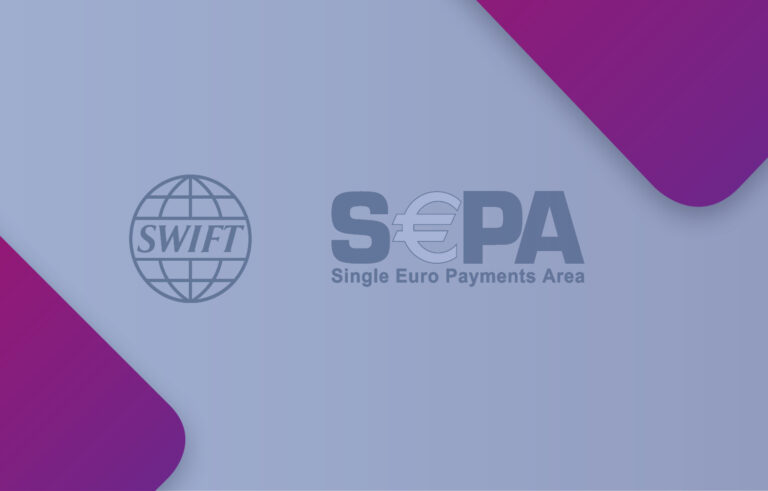
In the course of the next five years, demand for payments in cryptocurrencies will become large-scale. Crypto wallets will be tied to card accounts, and wages will be calculated and paid in cryptocurrency as well. This optimistic forecast was given to Bilderlings by Konstantin Vasilenko – co-founder of the Latvian Blockchain Association – during the Riga COMM 2018 conference.
At the forum held in the VT1 pavilion at Kipsala, many interesting reports dedicated to various financial technologies topics were presented. One presentation given by a board member of the Cryptocash and Latvian Blockchain Association was especially noteworthy because the speaker described the present situation of these technologies’ integration in the economy of Europe and Latvia in particular.
– A year ago, at the first Riga Honeybadger conference, representatives of mining companies complained of insufficient mass demand for cryptocurrencies. The same issues hung in the air again this year at Honeybadger 2018. What has changed in a year? And, if nothing is changing, is it worth it remaining a crypto-enthusiast?
– As a representative of the blockchain industry, I can point out that this year the situation is actually improving. The state authorities, including the State Revenue Service (SRS), should help companies work with cryptocurrencies, says Vasilenko. The SRS has to provide recommendations for businesses with regards to how to accept cryptocurrency for payments and how to do the bookkeeping for these transactions. This is a technical aspect. The number of cryptoprocessing companies in Latvia is growing, but, unfortunately there is still no clarity as to taxation and fiscal reports, what to do, how to do it, how to conduct transactions.
– Obviously, by paying a profit tax – as it is done in the US, Switzerland, everywhere?
– This is true in the case of an ordinary business. For example, if a coffee merchant accepts payment in bitcoins and immediately converts it into euros, then paying taxes is out of question. For more complex transactions, the business must understand how many accounting entries should be done – one or more, how to prepare financial reporting, etc. There are no instructions on this from the SRS, and as soon as they provide these instructions, explaining how to do it, how to check and report, cryptocurrencies will become closer to business in Latvia.
– And what about the people, that is consumers – will they become closer as well? Or is the SRS not interested in this?
– The SRS is slowly starting to work on regulation. Two companies working with cryptocurrency in Latvia have already published reports on how they paid taxes, about how it can be done. But still, the regulatory initiative should come from the SRS – because at the present moment there is no ban, but also no rules… Adaptation of cryptocurrencies to the market, of course, is not tied to regulation; it depends on market demand. Why do I need to accept bitcoins in business if nobody wants to pay with them? At present, those who are doing this are called crypto enthusiasts.
– For example?
– The airBaltic airline was one of the first in the world to start accepting cryptocurrency payments. Sotheby’s also sells real estate in Latvia for bitcoin. In the Old Riga café, Spot, you can also pay out of your crypto wallet; the owner is a big enthusiast. More than ten companies accept payments in cryptocurrencies. I know five companies which carry out exchange, purchase and sale transactions with cryptocurrency and fiat currencies, and four years ago our Paybis was the only one. For example, Transcoin is a copy of our model, and that is a good thing, because a successful business is often, or always, copied. About five companies known to me are engaged in cryptocurrency mining on a sizeable scale for Latvia.
– What is the attitude of local commercial banks?
– You know, if you intend to transfer money from an account at Citadele or Swedbank to the account of a cryptoexchange or broker in order to buy bitcoin, it seems probable that your account will be closed. This is not a protectionist policy for the benefit of ordinary transactions in fiat euros, dollars, and so on – this is the policy of detachment and de-risking. Obviously, once the Bank of Latvia says that there is no risk, all banks will make the decision to work with cryptocurrencies.
– Is the initiative on the part of the ECB possible?
– On the part of the European Commission, the FATF (Financial Action Task Force, an EU structure monitoring and preventing money laundering under the Anti-money Laundering, AML regulations) rules are being developed, indeed. Starting from 2019 there will be a common European directive for EU countries on how we will work and pay taxes.
– And what about the global scale – when will cryptocurrency push the dollar aside?
– You know, although we are all crypto enthusiasts, the price of bitcoin will only increase with the increase of its market adaptation. In Japan, Estonia and Malta, people are now doing a lot to bring this moment closer. In Venezuela, President Nicholas Maduro has equalled Petro cryptocurrency with a barrel of Venezuelan oil and other resources, like gold. But in Caracas this was done to heat up the country’s economy under the pressure of American sanctions. Bypassing sanctions is not the point of cryptocurrency use, at least, it is not the intended freedom.
– For interbank transactions, UniCredit, UBS and Santander, the Latvian bank Norvik and other banks are increasingly using XRP or Ripple; speed is essential here.
– Yes, Ripple is trying to sell this solution to banks, because SWIFT has been around for almost 50 years and it’s a very slow system if you want to, say, convert yen into Mexican pesos between banks, for example. With cryptocurrency exchanges this kind of conversion is performed almost instantaneously. XRP is a potential alternative to the outdated SWIFT system, as it is much faster.
Stablecoins are interesting (stablecoin is a general term for cryptocurrencies that are tied to stocks of common currencies – euro, dollar – or physical commodities (gold, oil, as mentioned above, Petro), and whose exchange rates are subject to less fluctuations compared to typical cryptocurrencies).
It has all the functions of money, as a means of exchange in transactions, allowing for trade in goods and services to be performed without barter; a settlement unit that makes it possible to compare and assign the market value of goods and services; means of capital accumulation. Stablecoins are popular in Malta and the US; the Circle has created its own stablecoin and others have as well. I do not quite understand how the US Federal Reserve and other regulators in the US came to take a chance on legitimizing stablecoins tied to the dollar on a 1:1 basis, for example? Under AML, all transactions in US dollars are monitored, and you can confidentially send or receive money from North Korea in the stablecoin – and no one will be tracking it.
– How do you evaluate the enthusiasm of Latvian politicians after the October 6 parliamentary elections?
– You know, politicians are exactly the people who should make countries’ decisions about cryptocurrencies. This is the case in Estonia, Malta, Belarus, why not in Latvia? But it seems to me that for our politicians, cryptocurrency and blockchain are a drop in the ocean compared to other problems. The minister of economics Arvils Asheradens has built up a working group that helps to systematize and describe the challenges and opportunities for the introduction of blockchain and cryptocurrencies in Latvia. This happened after the visit of a Japanese delegation to Latvia; and Japan has gone very far beyond Europe in its creation of a crypto-economy, and the benefits are obvious there.
Finally, on the part of politicians and mechanisms of the European Union, a lot is being done for broad market adaptation. I think that in the next 2-3 years there will be European directives that will legitimize bitcoin and other crypto-currencies for retail payments, and by 2023 such directives will be introduced in the trade in goods and services.
Earlier, Bilderlings described in detail the topic of the report, with which the representative of the company spoke within the framework of the largest financial technologies conference in the Baltics, Riga COMM 2018.






